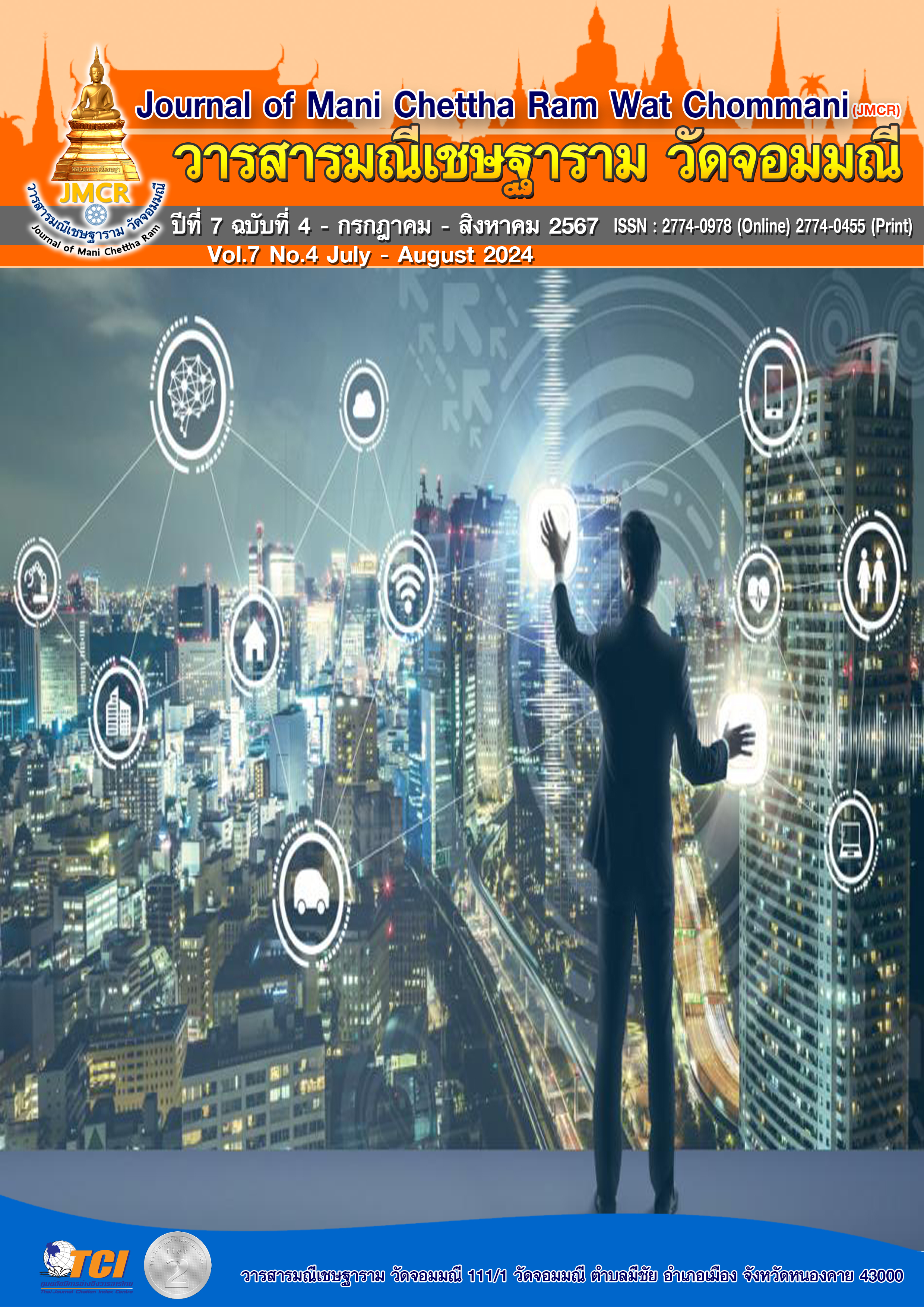GUIDELINES FOR SELF-DEVELOPMENT IN THE PERFORMANCE OF SUPPORT PERSONNEL IN HIGHER EDUCATION INSTITUTIONS: CASE OF THE COLLEGE OF MANAGEMENT INNOVATION UNIVERSITY OF TECHNOLOGY RAJAMANGALA RATTANAKOSIN
Keywords:
Self-development, Operational aspect, Support personnel, Higher education institutionAbstract
The objectives of this research are 1) to study the needs for self-development in the work performance of support personnel in higher education institutions: the case of the College of Management Innovation. Rajamangala University of Technology Rattanakosin and 2) guidelines for self-development in further education Training Learning aspect technical aspects of operations Technology Remuneration Job security and advancement in the position. The target group is support personnel in the Salaya area and Wang Klai Kangwon campus. The purpose of this study was to interview 20 people. The research tools included studying related documents and interviewing in a narrative format. Data analysis is divided into 2 parts: Part 1 analyzes data from documents in the form of content analysis and Part 2 analyzes data from specific interviews. Then it was triangulated in terms of data collection methods. (Methodological Triangulation) to consider the facts to be complete, able to answer the research questions and consistent with the objectives. This was done by observing along with questioning the informants. Once the analytical data has been obtained, it will be presented as a descriptive text.
The research results found that:
- Have a need for further education Second is training. Learning aspect technical aspects of practice Technology Job security Advancement in job positions and remuneration respectively
- Guidelines for self-development in the work performance of support personnel in higher education institutions: the case of the College of Management Innovation Rajamangala University of Technology Rattanakosin found that personnel should be encouraged to continue their education at all levels by providing scholarships. Support the exchange of knowledge with outside organizations. Support the use of technology that is appropriate for operations. Support the opportunity to learn techniques for working Pay remuneration according to the degree obtained according to policy and law. There is a view of the company that attracts talented people to the organization. Focus on advancement and have a clear hierarchy for reaching management positions.
References
กมลฉัตร อยู่เจริญพงษ์. (2564). ความต้องการพัฒนาตนเองของบุคลากรเทศบาลเมือง บ้านสวน อำเภอเมืองชลบุรี จังหวัดชลบุรี. ใน รัฐศาสตรมหาบัณฑิต คณะรัฐศาสตร์และนิติศาสตร์. มหาวิทยาลัยบูรพา.
ธีร์ธรรม วุฑฒิวัตรชัยแก้ว และคณะ. (2561). กลยุทธ์เพื่อเสริมสร้างองค์กรแห่งความสุข. (พิมพ์ครั้งที่ 2). กรุงเทพมหานคร: แอทโฟร์พริ้นท์.
วิทยาลัยนวัตกรรมการจัดการ. ออนไลน์ (2567). เรียกใช้เมื่อ 28 มิถุนายน 2567. จาก https://www.rcim.in.th/
สุรีวัลย์ เงินพูลทรัพย์และรัชยา ภักดีจิตร. (2564). รูปแบบการพัฒนาบุคลากรของมหาวิทยาลัยเทคโนโลยีราชมงคลรัตนโกสินทร์ในยุคประเทศไทย 4.0. Journal of Administrative and Management Innovation, 9(1), 68-78
โสมวลี ชยามฤต. (2564). การพัฒนาทรัพยากรมนุษย์เพื่อรองรับยุคดิจิทัลขององค์การภาครัฐและเอกชน. วารสารสหวิทยาการมนุษยศาสตร์และสังคมศาสตร์, 4 (1).
สำนักงานเลขาธิการสภาการศึกษา กระทรวงศึกษาธิการ. (2560). ฐานข้อมูลหน่วยงานภาครัฐ. ออนไลน์. เรียกใช้เมื่อ 10 กรกฎาคม 2567. จากhttps://www.onec.go.th/index.php/page/view/Outstand/2532




